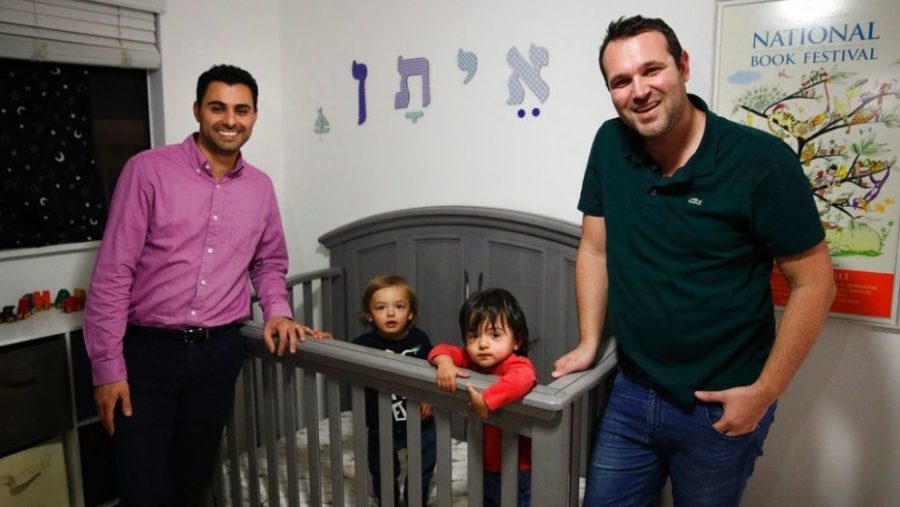Twin’s Citizenship Highlights Inequalities
February 15, 2018
Citizenship is often so easily acquired that most of us don’t think too long about it. Any person born in the United States is, according to the 14th Amendment, a citizen.
For people born outside of the U.S., citizenship laws can become more complicated. Elad and Andrew Dvash-Banks are currently grappling with these complications as it relates to their twin sons.
Elad Dvash-Banks was born in Israel. He met Andrew Dvash-Banks while Andrew was studying in Israel. The two married in Canada in 2010 since the U.S. had yet to completely legalize gay marriage at that point. In Sept. 2016, their twin boys Ethan and Aiden were born from a surrogate mother. Ethan’s biological father is Elad, while Aiden’s father is Andrew. When the couple went to apply for citizenship for their sons at the consulate in Toronto, they were interrogated about the paternity of their sons. Ethan’s request for citizenship was rejected because his father was not born in the United States.
“I started crying,” Andrew Dvash-Banks said. “These are twins, how can you differentiate between them? They were born minutes apart.”
As a result of the refusal of Ethan’s citizenship, the couple has filed for a lawsuit against the U.S. State Department. They argue that Ethan deserves to be granted U.S. citizenship due to the fact that one of his fathers is a U.S. citizen regardless of who his biological father is. Another case was filed against the department by a lesbian couple on behalf of on of their sons. One of the two spouses in this couple is Italian while the other is an U.S. citizen.
The Dvash-Banks family is arguing their case on the grounds of a U.S. citizenship law which allows for the children of a married couple where one parent is a U.S. citizen and the other is not to become citizens if the parent who is a citizen has lived in the U.S. for at least five years.They meet all these criteria.
However, the grounds for citizenship could be argued against on the basis of another part of U.S. citizenship law wherein children born outside of the U.S. must have one biological parent. However, this was made to apply to children born to unmarried couples. It was not meant to apply to those who are married and have children.
Now that artificial insemination and gay marriage are legal and a normal part of most Americans’ lives, the country’s legal code surrounding citizenship must catch up. The denial of the citizenship of Ethan Dvash-Banks is discriminatory. Heterosexual couples are never faced with the same barriers to their children’s citizenships, nor are they asked embarrassing and intrusive questions about the paternity of their children. As the country moves forward with new family structures, the U.S. government needs to fully recognize both their rights and the rights of their children.

